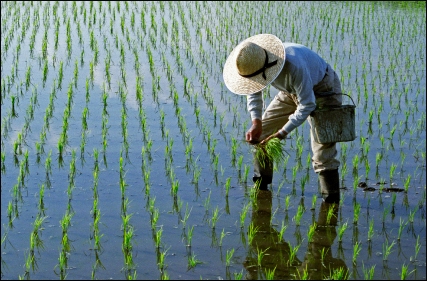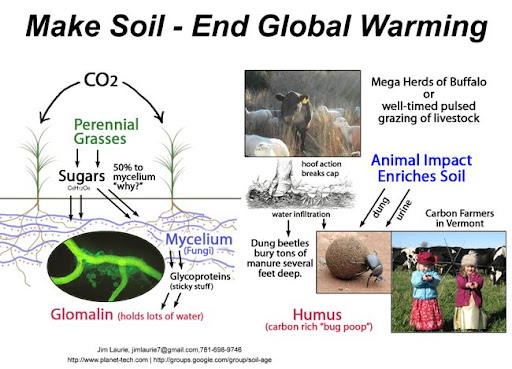You are here
Flood-Tolerant Rice

An international research team, led by scientists from California and the Phillipines, recently succeeded in the use of precision breeding to create a species of rice that can withstand the floods that often contribute to food scarcity in developing nations. The researchers isolated a gene called 'Sub1" that is tolerant to elongated water submersion, without using genetic modification, so they will avoid some regulatory hurdles. The researchers anticipate the rice will be especially impactful in India and Bangladesh, where they first tested the breeded plants.
A gene that enables rice to survive complete submergence has been identified by a team of researchers at the International Rice Research Institute in the Philippines and at the University of California's Davis and Riverside campuses. The discovery allows for development of new rice varieties that can withstand flooding, thus overcoming one of agriculture's oldest challenges and offering relief to millions of poor rice farmers around the world.
While rice thrives in standing water, like all crops it will die if completely submerged for more than a few days. The development and cultivation of the new varieties is expected to increase food security for 70 million of the world's poorest people, and may reduce yield losses from weeds in areas like the United States where rice is seeded in flooded fields. Results of this study will appear in the Aug. 10 issue of the journal Nature.
"Globally, rice is the most important food for humans, and each year millions of small farmers in the poorest areas of the world lose their entire crops to flooding," said Pamela Ronald, a rice geneticist and chair of UC Davis' Plant Genomics Program. "Our research team anticipates that these newly developed rice varieties will help ensure a more dependable food supply for poor farmers and their families. And, in the long run, our findings may allow rice producers in the United States to reduce the amount of herbicides used to fight weeds."
<p>Pamela Ronald, UC Davis Plant Pathology<br />
(530) 752-1654<br />
pcronald@ucdavis.edu</p>
clip art
- Log in to post comments



